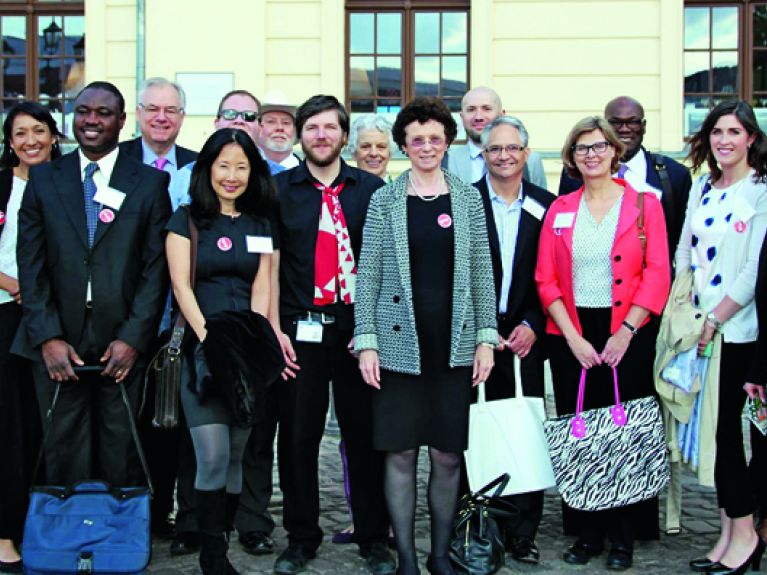Bridge-builders across the Atlantic
The American Council on Germany is committed to transatlantic dialogue.

When, in June 1990, then German Chancellor Helmut Kohl went to the United States canvassing support for German Unity, he consciously chose the American Council on Germany (ACG) as his forum. Established in 1952 by a German-American banker, Eric Warburg, and an American diplomat, John McCloy, this private, nonpartisan organization is committed to improving the understanding between Germans and Americans. To this end, it cooperates closely with its German counterpart, Atlantik-Brücke. The two organizations aspire to help people overcome prejudice and to foster a trusting relationship between people in both countries. After all, despite much in common, people’s views of the world on this and the other side of the Atlantic are often quite different.
“This is a crucial time for the German-American and U.S.-European relationship,” reports Steven E. Sokol, who took over the presidency of the ACG in June 2015. “We need to devote time and energy to reinforcing our ties in the complex interconnected world that exists today.” For instance, through rounds of political discussions of the kind that the ACG regularly organizes in New York. Such events , for example, cast light on the conflict in Ukraine, debate the future of the euro, or explore the legacy of novelist Günter Grass.
In order to ensure that this productive exchange of opinions continues in the future, the ACG has set up a young leaders program aimed at networking tomorrow’s managers. Additionally, there are bursaries in place, allowing 30 Americans and Germans to experience a slice of everyday life on the other side of the Atlantic.

